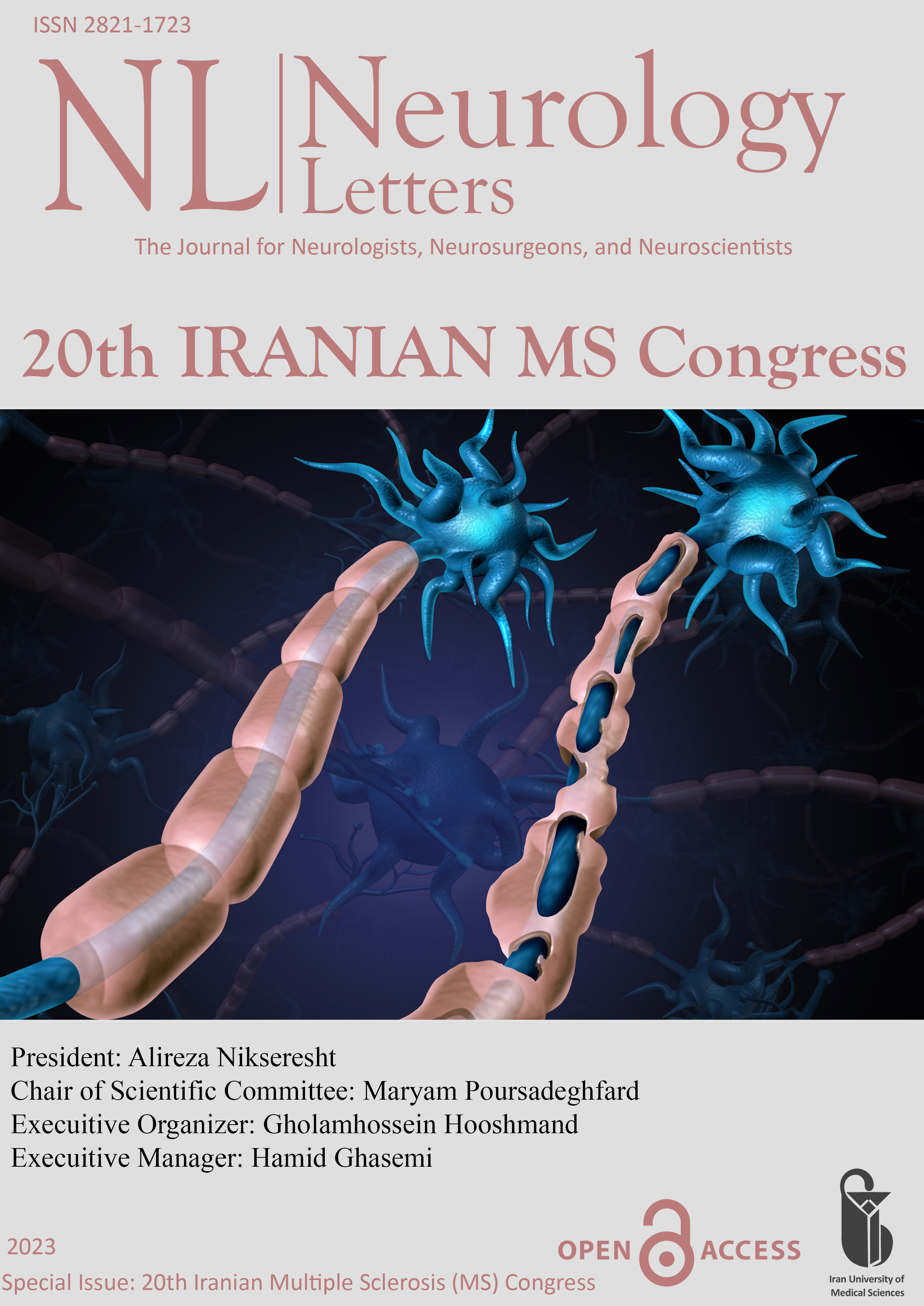Nutritional recommendations in multiple sclerosis patients: a narrative review (ORP-46)
Document Type : Oral Presentation
Author
Multiple sclerosis research center, Neuroscience institute, Tehran University of medical sciences, Tehran, Iran
Abstract
Studies show that nutritional factors have an effect on both the incidence and symptoms as well as progression of multiple sclerosis (MS). We reviewed nutritional recommendations in MS. Unfortunately; there is currently no proven beneficial diet for MS patients. However, having a healthy diet to get adequate amount of nutrients and weight control can be beneficial for MS patients. Diets characterized by elevated consumption of fruits, vegetables, whole grains, and lean sources of protein, while concurrently restricting intake of processed foods, sugar, and saturated fats, demonstrate advantageous due to their antioxidative and anti-inflammatory properties.
Fortunately, in most MS patients, the disease is mild and moderate. However, in the advanced stages of the disease, there is a possibility of needing nutritional support, and the progress of the disease is associated with dysphagia, so it is necessary to adjust the consistency of food, transfer from solid food to puree, and concentrate liquids. Neurogenic bowel in these patients or drug side effects can lead to constipation or diarrhea, so the prevalence of constipation in these patients is high and its control is recommended through consumption of fluids, fibers and increased physical activity. Neurogenic bladder is also common in MS patients, which leads to frequent urination, urinary incontinence and urinary infection. Therefore, distribution of liquid consumption during waking hours and minimizing liquid consumption before going to sleep can minimize problems and complications.
The expansion of following the western dietary pattern (food pattern including high amounts of animal fat, red meat, fried foods, sweetened and high sugar drinks, high salt amounts) and its subsequent results such as obesity is one of the risk factors for MS, and following A healthy non-western diet can help control MS.
The Mediterranean dietary pattern is known as an anti-inflammatory pattern. The beneficial effects of this diet are related to the presence of large amounts of polyphenols, flavonoids and tannins. Due to the inflammatory nature of MS, this diet has been of great interest. Several studies have shown the role of following this diet in reducing the risk of MS. A pilot RCT study showed the role of following a Mediterranean dietary pattern on reducing fatigue, disease symptoms and EDSS in MS patients. Another cohort study has also shown its role in less disability in MS patients .
Keywords
 Neurology Letters
Neurology Letters
